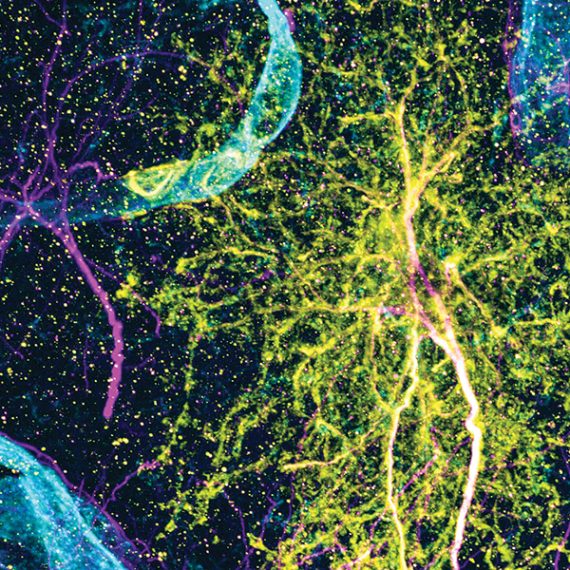Daily mindfulness practice reduces anxiety for autistic adults
After six weeks of practicing mindfulness with the help of a smartphone app, adults with autism reported lasting improvements in their well-being.

Just ten to 15 minutes of mindfulness practice a day led to reduced stress and anxiety for autistic adults who participated in a study led by scientists at MIT’s McGovern Institute. Participants in the study used a free smartphone app to guide their practice, giving them the flexibility to practice when and where they chose.
Mindfulness is a state in which the mind is focused only on the present moment. It is a way of thinking that can be cultivated with practice, often through meditation or breathing exercises—and evidence is accumulating that practicing mindfulness has positive effects on mental health. The new study, reported April 8, 2025, in the journal Mindfulness, adds to that evidence, demonstrating clear benefits for autistic adults.
“Everything you want from this on behalf of somebody you care about happened: reduced reports of anxiety, reduced reports of stress, reduced reports of negative emotions, and increased reports of positive emotions,” says McGovern Investigator John Gabrieli, who led the research with Liron Rozenkrantz, an investigator at the Azrieli Faculty of Medicine at Bar-Ilan University in Israel and a research affiliate in Gabrieli’s lab. “Every measure that we had of well-being moved in significantly in a positive direction,” adds Gabrieli, who is also the Grover Hermann Professor of Health Sciences and Technology and a professor of brain and cognitive sciences at MIT.
One of the reported benefits of practicing mindfulness is that it can reduce the symptoms of anxiety disorders. This prompted Gabrieli and his colleagues to wonder whether it might benefit adults with autism, who tend to report above average levels of anxiety and stress, which can interfere with daily living and quality of life. As many as 65 percent of autistic adults may also have an anxiety disorder.
Gabrieli adds that the opportunity for autistic adults to practice mindfulness with an app, rather than needing to meet with a teacher or class, seemed particularly promising. “The capacity to do it at your own pace in your own home, or any environment you like, might be good for anybody,” he says. “But maybe especially for people for whom social interactions can sometimes be challenging.”
The research team, including first author Cindy Li, the Autism Recruitment and Outreach Coordinator in Gabrieli’s lab, recruited 89 autistic adults to participate in their study. Those individuals were split into two groups: One would try the mindfulness practice for six weeks, while the others would wait and try the intervention later.
Participants were asked to practice daily using an app called Healthy Minds, which guides participants through seated or active mediations, each lasting 10 to 15 minutes. Participants reported that they found the app easy to use and had little trouble making time for the daily practice.
After six weeks, participants reported significant reductions in anxiety and perceived stress. These changes were not experienced by the wait-list group, which served as a control. However, after their own six weeks of practice, people in the wait-list group reported similar benefits. “We replicated the result almost perfectly. Every positive finding we found with the first sample we found with the second sample,” Gabrieli says.
The researchers followed up with study participants after another six weeks. Almost everyone had discontinued their mindfulness practice—but remarkably, their gains in well-being had persisted. Based on this finding, the team is eager to further explore the long-term effects of mindfulness practice in future studies. “There’s a hypothesis that a benefit of gaining mindfulness skills or habits is they stick with you over time—that they become incorporated in your daily life,” Gabrieli says. “If people are using the approach to being in the present and not dwelling on the past or worrying about the future, that’s what you want most of all. It’s a habit of thought that’s powerful and helpful.”
Even as they plan future studies, the researchers say they are already convinced that mindfulness practice can have clear benefits for autistic adults. “It’s possible mindfulness would be helpful at all kinds of ages,” Gabrieli says. But he points out the need is particularly great for autistic adults, who usually have fewer resources and support than autistic children have access to through their schools. Gabrieli is eager for more people with autism to try the Healthy Minds app. “Having scientifically proven resources for adults who are no longer in school systems might be a valuable thing,” he says.
This research was funded in part by The Hock E. Tan and K. Lisa Yang Center for Autism Research at MIT and the Yang Tan Collective.




